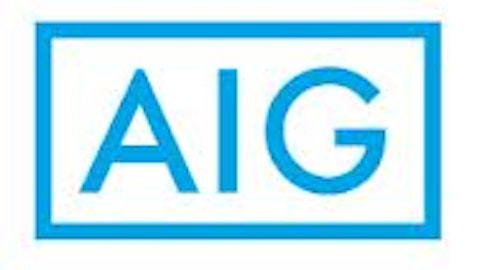
On May 13, Michael Price of MFP Investors gave a slide presentation at London Value Conference arguing that the fair value of Berkshire Hathaway’s stock should be roughly 20% lower than it is today.
So are the bears right about Berkshire Hathaway Inc. (NYSE:BRK.A)? Here’s five reasons why I believe the answer is an emphatic “No.”
Berkshire has better accounting practices than 95% of U.S.-listed companies. Buffett generally avoids loopholes in GAAP accounting, which means that Berkshire Hathaway Inc. (NYSE:BRK.A)’s businesses and partnerships have an inherently higher intrinsic value relative to the market.
Most companies believe in aggressive accounting practices that rely on shifty measurements of “accounting goodwill” (not genuine economic goodwill, but rabbit-out-a-hat valuations attached to things like jingles or the name recognition of also-ran products without the benefit of a durable competitive advantage). In the event of a major financial crisis, scandal or plain vanilla recession, such “aggressive” accounting tricks can be an investors worst nightmare.
Ownership in Berkshire Hathaway Inc. (NYSE:BRK.A) confers a tremendous, if often under-appreciated, advantage, in that Buffett’s accounting practices favor owners over management. Berkshire’s subsidiaries are proven outperformers that would be likely worth considerably more than Berkshire’s book value alone would suggest. How many companies can you say that about?
Heinz is likely to surprise. Berkshire’s Heinz acquisition has largely dropped off of investor’s radar, but there’s every reason to assume that 3G Capital and new Heinz CEO, Bernardo Hees have big plans for the company. Both 3G and Hees have a track record for cutting costs, with some estimates putting the figure as high as $225 million over the next 3 years.
Burlington Northern Sante Fe has a lock on US shale oil transportation. BNSF has 1,000 miles of rail line in place and 8 originating terminals in the Williston basin. At present, BNSF serves 30% of US oil refineries and commands 80% of the crude-on-rail market. Delivering crude via tank cars costs about $3 more per barrel than moving by pipeline, and the gap is actually shrinking as bigger storage terminals are built to meet demand.
Berkshire’s entry into the commercial underwriting market will dramatically increase the company’s float. Two months ago, Bloomberg News reported that Berkshire Hathaway Inc. (NYSE:BRK.A) was, in Warren Buffett’s words, “…getting into commercial-insurance very big time.” At the time, many investors wondered why Buffett would bother. Berkshire already owned Geico, along with half a dozen other insurance subsidiaries, and Hurricane Sandy had dealt commercial underwriters massive losses. Why would Buffett want to double down?
One of the key insights that Buffett realized early on was that an insurance company’s float, or the premiums that business owners pay to insure their property against loss, would provide him with a massive war chest at essentially zero or even negative rates of interest. By getting into commercial insurance, Berkshire is looking at a massive injection of cheap, imminently investable liquidity over the next few years – more than enough, in fact, to fund half a dozen more “elephant-sized” deals like Heinz.





